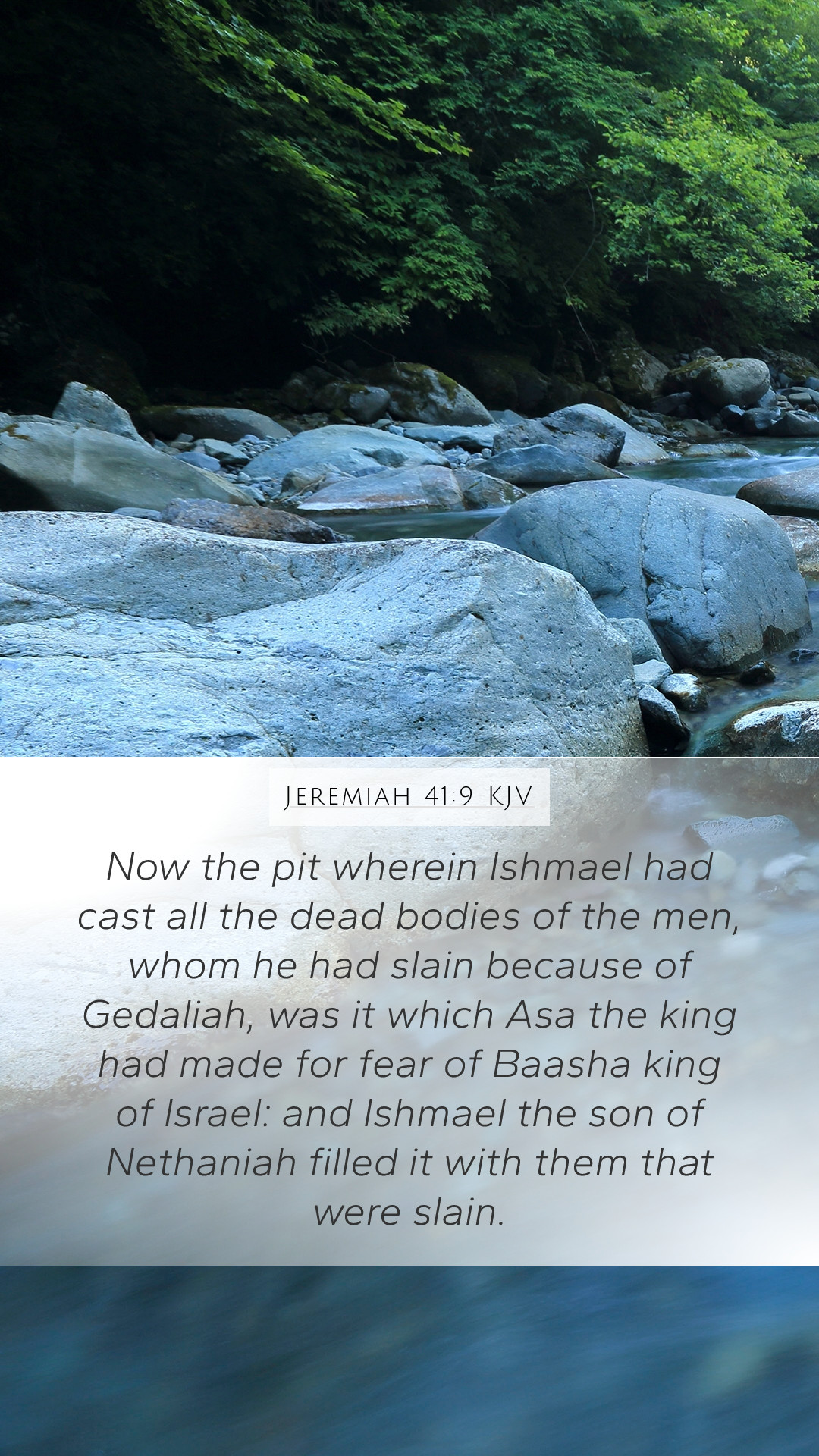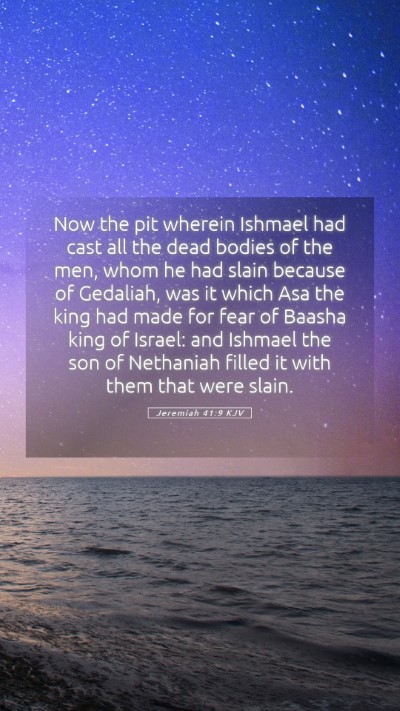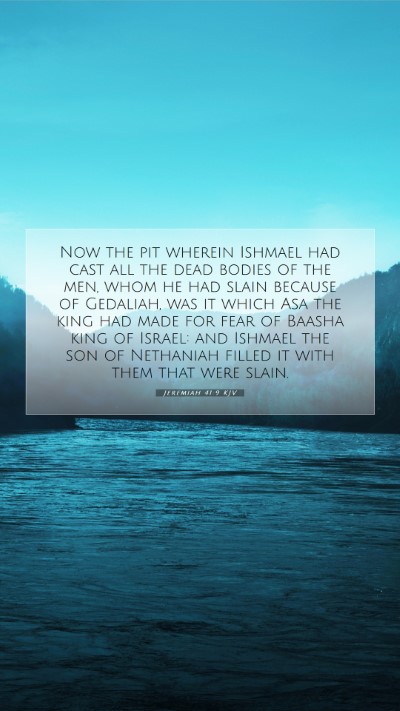Understanding Jeremiah 41:9
Verse: Jeremiah 41:9 - "Now the pit into which Ishmael had cast all the dead bodies of the men whom he had slain because of Gedaliah, was it which Asa the king had made for fear of Baasha: and Ishmael the son of Nethaniah filled it with them that were slain."
Overview
Jeremiah 41:9 presents a disturbing scene following the assassination of Gedaliah, the appointed governor of Judah. This verse highlights the brutality of Ishmael's actions as he disposes of the bodies of those he killed. In understanding this passage, we can derive various insights that not only reflect the historical context but also the spiritual ramifications of these events.
Historical Context
Historical background is crucial for understanding this verse. The events unfold during a tumultuous period for Judah after the Babylonian exile. Gedaliah represented a tenuous peace, and his assassination marked a turn towards chaos. Ishmael, acting out of treachery or possibly ambition, signifies those elements leading Judah further into despair. King Asa's connection to the pit provides a backdrop where history and morality intertwine.
Verse Analysis
- Brutality of Acts: Ishmael’s act of filling the pit with the slain indicates a complete disregard for human life. This is illustrative of the moral decay among the people.
- Symbolism of the Pit: The pit, originally constructed by Asa, symbolizes the fear and desperation associated with political turmoil and the lengths to which individuals go for power.
- Foreshadowing Destruction: This act foreshadows the impending destruction that will come upon Judah if they continue in their disobedience and violence.
Commentary Insights
According to Matthew Henry, Ishmael’s actions are a demonstration of how treachery breeds further violence. He draws attention to the profound implications of such actions on the nation's moral fabric, emphasizing the need for honest leadership.
Albert Barnes elaborates on the historical significance of Asa's pit, suggesting that it was once a place of refuge turned into a graveyard due to betrayal. This transformation reflects the tragic shift in the covenant community's nature.
Adam Clarke focuses on the prophetic element behind these verses. He argues that the actions of Ishmael were not merely political but rather a part of divine judgment, showcasing how God allows such chaos as a consequence of Israel's disobedience.
Application of the Verse
This passage serves as a relevant warning for contemporary readers about the dangers of betrayal among peers. The moral lessons drawn from Ishmael’s actions reflect issues such as:
- The consequences of ambition and betrayal in personal and communal contexts.
- The importance of leaders who uphold justice and peace rather than contribute to division and destructiveness.
- The reminder that God observes the actions of all individuals and may allow consequences in response to a community’s moral failings.
Related Bible Cross References
- 2 Kings 25:25: Discusses the aftermath of the fall of Jerusalem and further killings that follow the chaos.
- Jeremiah 40:6: Provides context about Gedaliah's appointment and the peace he sought to establish.
- Jeremiah 39:1-10: Covers the fall of Jerusalem, setting the stage for the events leading to Gedaliah's assassination.
Conclusion
In summary, Jeremiah 41:9 is not just an account of a gruesome act but an important reflection of the moral implications of betrayal and the consequences that accompany the breakdown of societal order. The insights drawn from it are vital for anyone seeking to grasp bible verse meanings and Bible verse interpretations. By examining historical context and the moral lessons it imparts, readers can deepen their Bible study insights and enhance their Bible study resources for a more profound understanding of Scripture.


